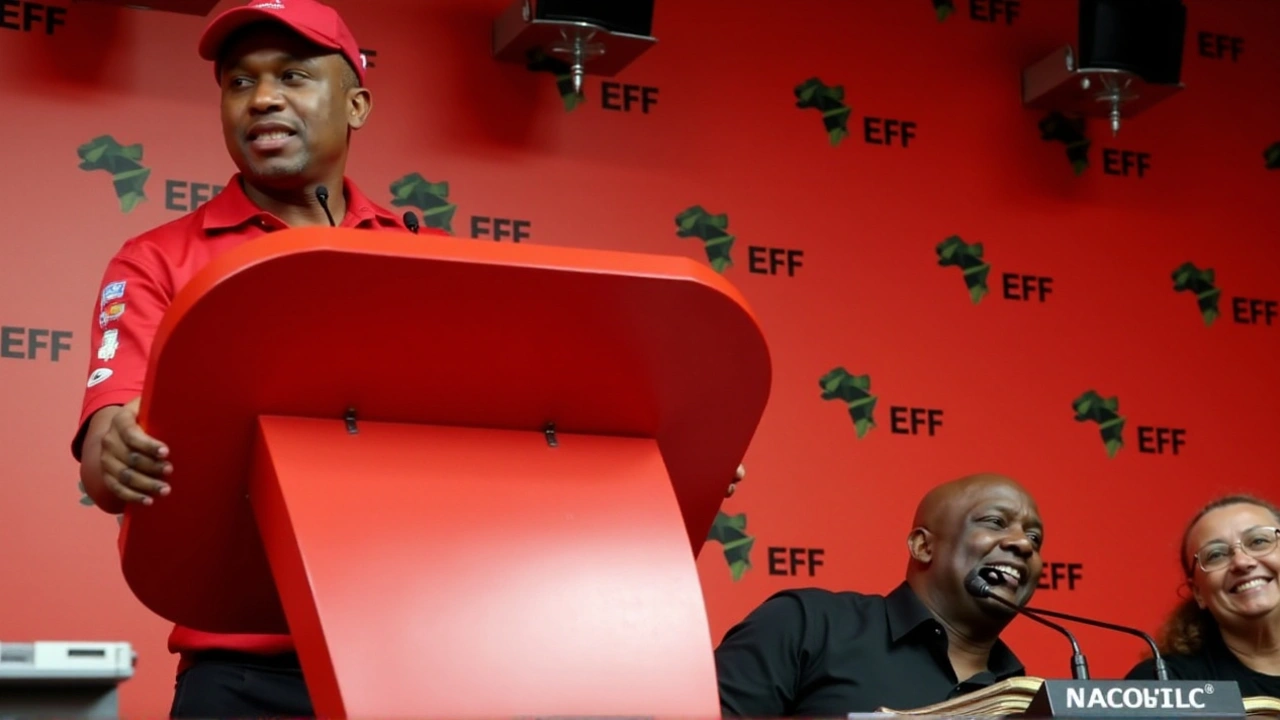Floyd Shivambu’s Surprising Exit from EFF Creates Turmoil for Malema’s Party

Shockwaves in South African Politics: Floyd Shivambu’s Departure from EFF
In a move that has sent shockwaves through the arena of South African politics, Floyd Shivambu, the deputy president and a founding member of the Economic Freedom Fighters (EFF), has officially resigned from the party. According to Julius Malema, the leader of EFF, this development was not anticipated and took the party by surprise.
Internal Conflicts and the Ultimate Break
Shivambu's exit appears to be the result of escalating internal conflicts within the EFF. Reports indicate a fallout between Shivambu and Malema, which came to light when Malema discovered that Shivambu was intending to contest for the presidency of the EFF. This revelation marked a turning point, creating an irreconcilable rift between the two prominent figures. For Malema, Shivambu's departure is not just a political setback but a personal blow, describing it as 'painful' and comparing it to the loss of his mother.
Despite the bitterness of the split, Malema has extended an olive branch to Shivambu, emphasizing that the doors of EFF will always remain open for him. According to Malema, Shivambu will never be regarded as an enemy of the party, a statement reflecting the complicated mix of political rivalry and personal relationships.
Joining uMkhonto Wesizwe (MK)
Shivambu’s next steps add another layer to this complex political drama. He will be joining the uMkhonto Wesizwe (MK) party, led by former President Jacob Zuma. This strategic move comes at a pivotal time when the MK party has recently ascended to the status of the third-largest political party in South Africa, surpassing the EFF. The MK party’s newfound strength has also secured its position as the official opposition in the National Assembly, thereby complicating the political landscape just as the EFF prepares to elect new leadership in December.
Malema has declared his intention to stand for re-election, a move that may shape the future trajectory of the party amidst the internal turmoil and the external competition posed by the MK party.
Accusations and Financial Controversies
Shivambu’s resignation does not occur in a vacuum but against a backdrop of ongoing internal tensions within the EFF and recent accusations linking both Shivambu and Malema to questionable payments from VBS Mutual Bank. These allegations have only served to heighten the sense of political turbulence, painting a precarious picture of the party’s internal dynamics.
The allegations have placed both men under scrutiny, raising questions about financial integrity and accountability within the leadership of EFF. Regardless of Shivambu's departure, these issues remain unresolved and continue to cast a shadow over the party.
Implications for the EFF and South African Politics
The exit of a prominent figure like Shivambu unquestionably has far-reaching implications. As a founding member, his departure signifies a potential shift in the ideological and operational dynamics of the EFF. It opens up questions about future leadership and the potential for other members to follow suit, possibly altering the party’s cohesion and influence.
The EFF is set to hold its leadership elections in December, an event that will be crucial in determining its future course. The possibility of more resignations or shifts in alliances cannot be discounted, and it remains to be seen how Malema’s leadership will navigate this challenging period.
Meanwhile, Shivambu's transition to the MK party signifies a bold step towards new political ambitions. The MK party, under the leadership of Jacob Zuma, now stands as a formidable opposition. Shivambu's role in this new political landscape will be closely watched as it develops.
In the grand tableau of South African politics, such shifts and realignments underscore the dynamic and often unpredictable nature of political affiliations and rivalries. Shivambu’s resignation is more than an internal party issue; it is a herald of change, signaling new configurations in the balance of political power.
Conclusion
Shivambu’s exit from the EFF represents not just a personal and political departure but a significant moment in South African politics. As the EFF grapples with this unexpected change, and as the MK party consolidates its gains, the political future remains uncertain. What is clear, however, is that Floyd Shivambu's next moves will be pivotal in shaping the evolving political narrative of South Africa.